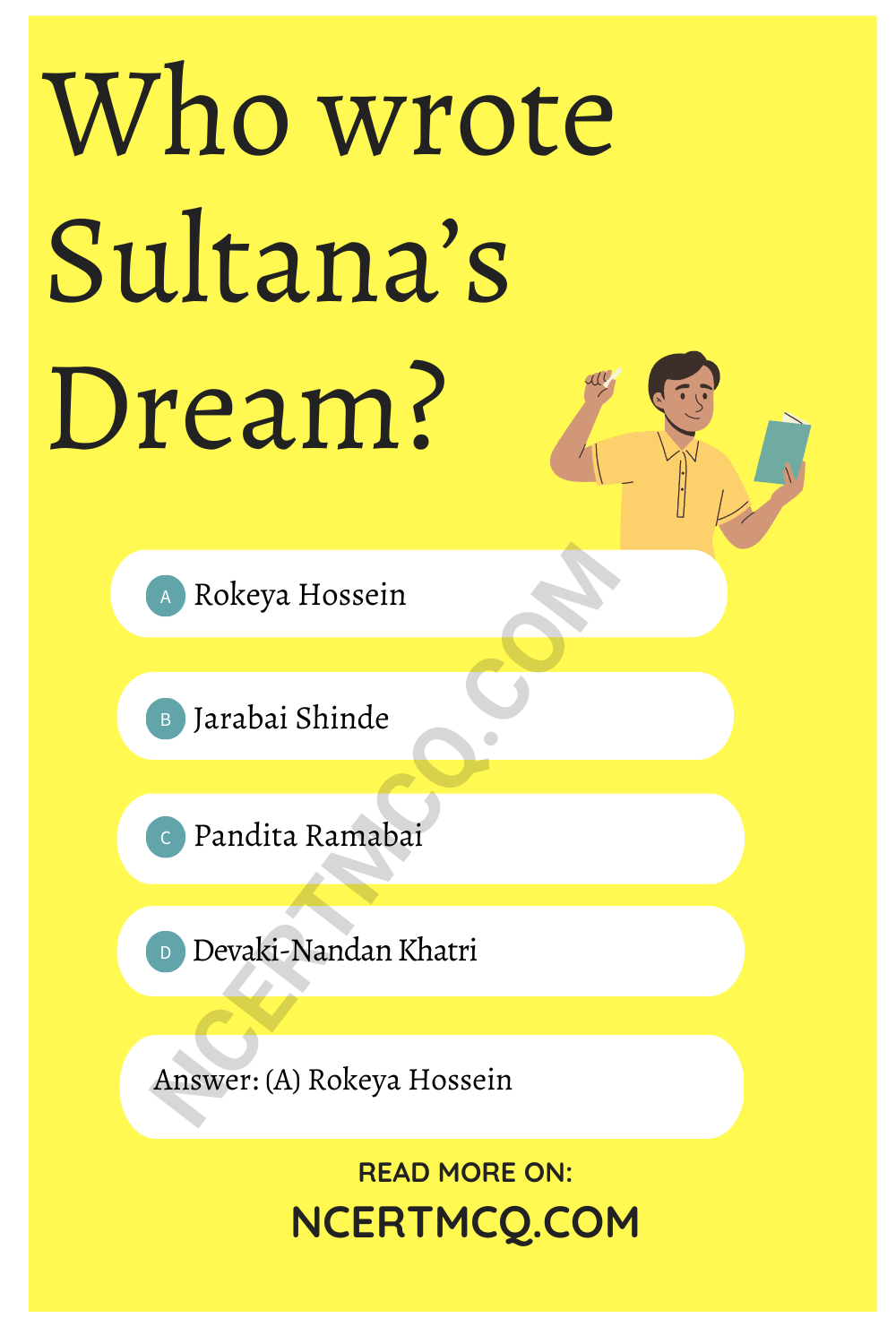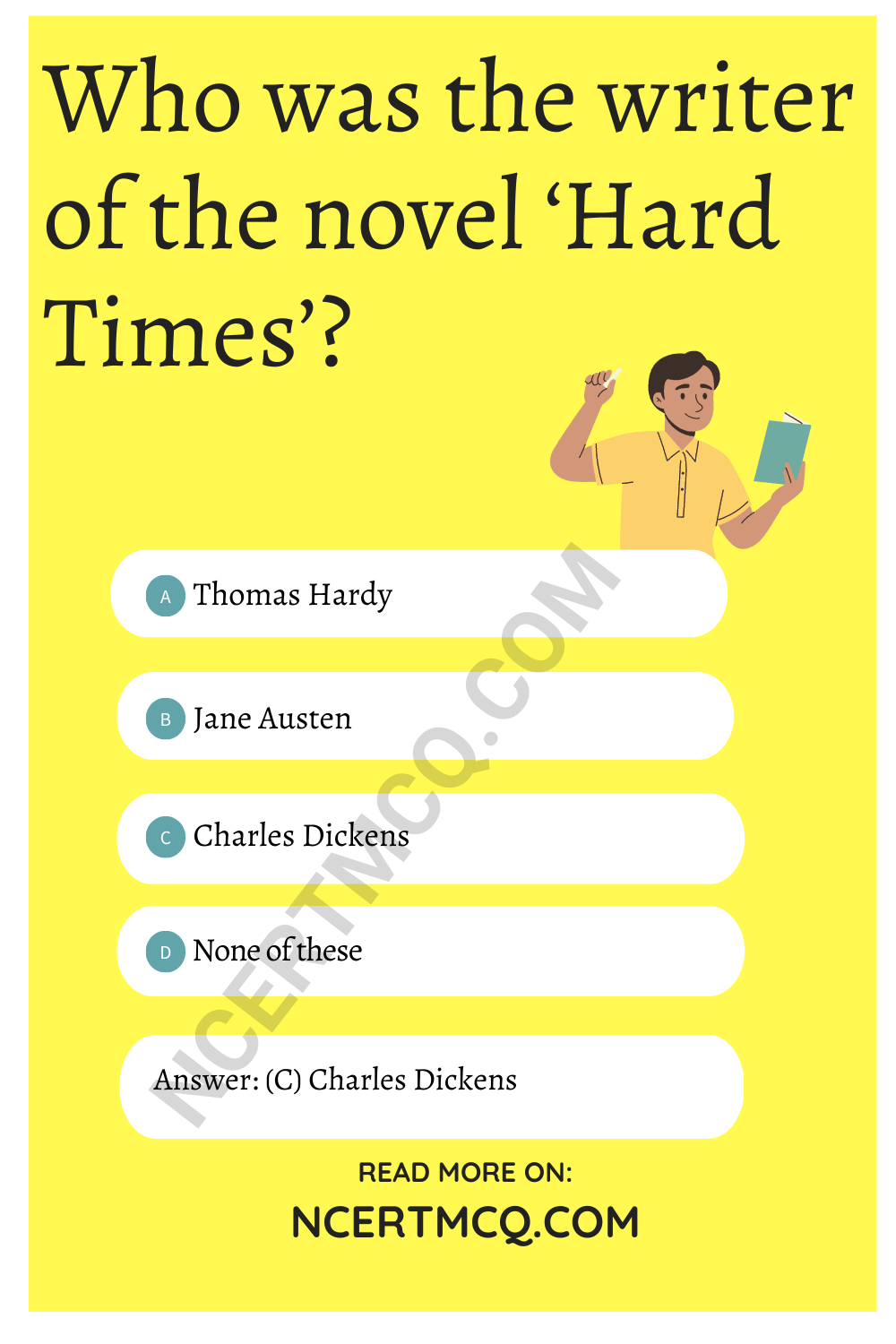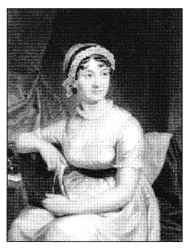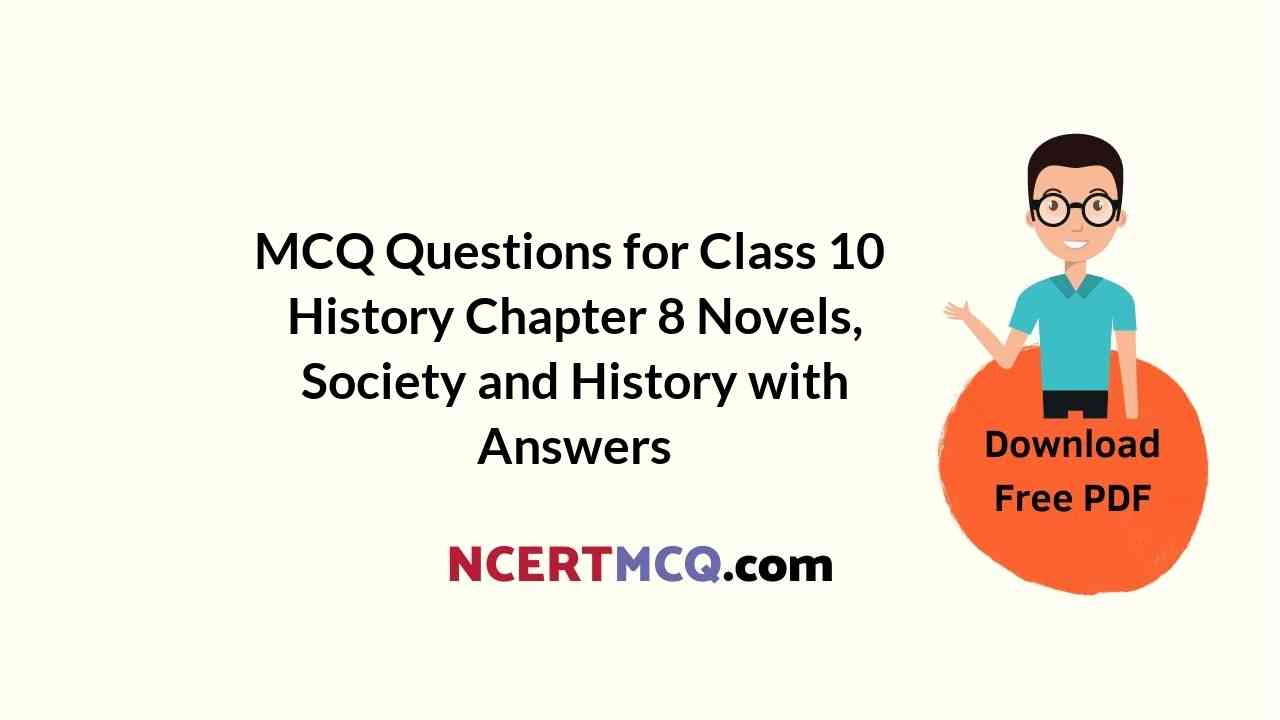Check the below NCERT MCQ Questions for Class 10 History Chapter 8 Novels, Society and History with Answers Pdf free download. MCQ Questions for Class 10 Social Science with Answers were prepared based on the latest exam pattern. We have Provided Novels, Society and History Class 10 History MCQs Questions with Answers to help students understand the concept very well. https://ncertmcq.com/mcq-questions-for-class-10-social-science-with-answers/
Novels, Society and History Class 10 MCQs Questions with Answers
Choose the correct option:
History Of Novel MCQ Class 10 Question 1.
Love stories for adolescent girls first became popular in
(a) Britain
(b) the USA
(c) France
(d) Germany
Answer
Answer: (b) the USA
Historical Novel MCQ Questions Class 10 Question 2.
Treasure Island was written by
(a) Rudyard Kipling
(b) Thomas Hardy
(c) Charles Dickens
(d) R.L. Stevenson
Answer
Answer: (d) R.L. Stevenson
Class 10 History Chapter 8 MCQ With Answers Question 3.
Novels began to be written in Europe in the
(a) sixteenth century
(b) seventeenth century
(c) eighteenth century
(d) nineteenth century
Answer
Answer: (b) seventeenth century
Question 4.
Which one of the following was seriaised in a magazine?
(a) Jane Eyre
(b) The Mayor of Casterbridge
(c) Pickwick Papers
(d) All the Year Round
Answer
Answer: (c) Pickwick Papers
Question 5.
The first proper modern novel was
(a) Chandrakanta
(b) Pariksha-Guru
(c) Indirabai
(d) Indulekha
Answer
Answer: (b) Pariksha-Guru
Question 6.
Who wrote Sultana’s Dream?
(a) Rokeya Hossein
(b) Jarabai Shinde
(c) Pandita Ramabai
(d) Devaki-Nandan Khatri
Answer
Answer: (a) Rokeya Hossein

Question 7.
Who is known as the pioneer of modern Hindi literature?
(a) Bharatendu Harishchandra
(b) Premchand
(c) Ismat Chugtai
(d) Dharmavir Bharati
Answer
Answer: (a) Bharatendu Harishchandra
Question 8.
The first historical novel written in Bangali was –
(a) Titash Ekti Nadir Naam
(b) Anguriya Binimoy
(c) Padmarag
(d) Saraswativijayam
Answer
Answer: (b) Anguriya Binimoy
Question 9.
What was meant by ‘Vernacular’?
(a) Stylish writing
(b) Classical language
(c) Literary language
(d) Language of the common people
Answer
Answer: (d) Language of the common people
Question 10.
What was expressing in the novel Ramona?
(a) Love stories
(b) Adventure stories
(c) Comedy stories
(d) None of these
Answer
Answer: (a) Love stories
Explanation:
Ramona express the love stories written for adolescent girls by American women writers. It also first became popular in the period of 1884, especially in the US.
Question 11.
Which was the novels that became a great hit in the late 19th century?
(a) Treasure Island
(b) Jungle Book
(c) Both a and b
(d) None of these
Answer
Answer: (c) Both a and b
Explanation:
Books like R.L. Stevenson’s Treasure Island (1883) or Rudyard Kipling’s Jungle Book (1894) became great hits. They aroused the excitement and adventure of conquering strange lands.
Question 12.
Who was the writer of the novel ‘Mayor of Casterbridge’?
(a) Charles Dickens
(b) Thomas Hardy
(c) Walter Scott
(d) None of these
Answer
Answer: (b) Thomas Hardy
Explanation:
In his novel Mayor of Caster bridge, Thomas Hardy mourns about the loss of traditional rural communities, loss of a more personalised world and the old rural culture with its independent farmers dying out.
Question 13.
What was the hero of Daniel Defoe’s Robinson Crusoe is?
(a) Merchant
(b) Washerman
(c) An adventurer and slave trader
(d) None of these
Answer
Answer: (c) An adventurer and slave trader
Explanation:
The hero of Daniel Defoe’s Robinson Crusoe (1719) is an adventurer and slave trader. Shipwrecked on an island, Crusoe treats coloured people not as human beings equal to him, but as inferior creatures.
Question 14.
What do you mean by ‘serialised novel’?
(a) A cheap, illustrated novel
(b) A novel published in a magazine
(c) A format in which the story is published in instalments
(d) All of these
Answer
Answer: (c) A format in which the story is published in instalments
Explanation:
A format in which the story is published in instalments, each part in a new issue of a journal. In 1836 a notable event took place when Charles Dickens’s Pickwick Papers was serialised in a magazine.
Question 15.
Which was the first major historical novel written in Assamese?
(a) Karuna
(b) Manomati
(c) Phulmoni
(d) None of these
Answer
Answer: (b) Manomati
Explanation:
Rajanikanta Bardoloi wrote the first major historical novel in Assam called Manomati (1900). It is set in the Burmese invasion stories about old soldiers who had fought in the 1819 campaign.
Question 16.
Which was the Bengali novels translated into Assamese by missionaries?
(a) Phulmoni
(b) Karuna
(c) both a and b
(d) None of these
Answer
Answer: (c) both a and b
Explanation:
The first novels in Assam were written by missionaries. Two of them were translations of Bengali including Phulmoni and Karuna.
Question 17.
Who was the writer of ‘Chandrakanta’?
(a) Chandu Menon
(b) Kandukuri Viresalingam
(c) Devaki Nandan Khatri
(d) None of these
Answer
Answer: (c) Devaki Nandan Khatri
Explanation:
The writings of Devaki Nandan Khatri created a novel reading public in Hindi. His best-seller, Chandrakanta is a romance with dazzling elements of fantasy and is believed to have contributed immensely in popularising the Hindi language.
Question 18.
Which is the first proper modern novel in Hindi?
(a) Pariksha Guru
(b) Bharatendu Harishchandra
(c) Ramayana
(d) None of these
Answer
Answer: (a) Pariksha Guru
Explanation:
Pariksha Guru, published in 1882, written by Srinivas Das of Delhi is the first proper modern novel in Hindi. It cautioned young men of well-to-do families against the dangerous influences of bad company and consequent loose morals.
Question 19.
Which was the earliest novel in Marathi?
(a) Mochongadh
(b) Muktamala
(c) Yamuna Paryatan
(d) None of these
Answer
Answer: (c) Yamuna Paryatan
Explanation:
The earliest novel in Marathi was Baba Padmanji’s Yamuna Paryatan (1857), which used a simple style of storytelling to speak about the plight of widows.
Question 20.
Who was the writer of ‘Sevasadan’?
(a) Premchand
(b) Bankim Chandra
(c) Sarat Chandra
(d) None of these
Answer
Answer: (a) Premchand
Explanation:
Premchand in 1916 wrote Sevasadan. Many critics think that his novel Sewasadan (The Abode of Service), lifted the Hindi novel from the realm of fantasy, moralising and simple entertainment.
Question 21.
Who was the writer of Jungle book?
(a) R. L. Stevenson
(b) Rudyard Kipling
(c) R. K. Narayan
(d) Charles Dickens
Answer
Answer: (b) Rudyard Kipling
Explanation:
Rudyard Kipling wrote Jungle Book in 1894 and it became great hit at that time.
Question 22.
Who was the writer of ‘Indulekha’?
(a) Chandu Menon
(b) Srinivas Das
(c) Raja Ravi Verma
(d) None of these
Answer
Answer: (a) Chandu Menon
Explanation:
The delightful novel of Chandu Menon was called Indulekha which published in 1889, was the first modern novel in Malayalam.
Question 23.
Who was the writer of the novel ‘Hard Times’?
(a) Thomas Hardy
(b) Jane Austen
(c) Charles Dickens
(d) None of these
Answer
Answer: (c) Charles Dickens
Explanation:
Charles Dickens wrote about the terrible effects of industrialisation on people’s lives and characters. His novel Hard Times (1854) describes Coketown, a fictitious industrial town, as a grim place full of machinery and many more.

Question 24.
What do you mean by ‘Meyeli’?
(a) The language associated with women’s speech
(b) The new style used by Bengali novel, a colloquial style associated with urban life
(c) The simple Bengali used by the poor and illiterate
(d) None of these
Answer
Answer: (a) The language associated with women’s speech
Explanation:
Meyeli is the language associated with women’s speech. This style was quickly replaced by Bankim’s prose which was Sanskritised but also contained a more vernacular style.
Source-based Questions:
Question 1.
Read the extract (Source A) taken from Textbook page 194 and then answer the questions that follow:
Why women should not read novels
From a Tamil essay published in 1927:
‘Dear children, don’t read these novels, don’t even touch them. Your life will be ruined. You will suffer disease and ailments. Why did the good Lord make you – to wither away at a tender age? To suffer in disease? To be despised by your brothers, relatives and those around you? No. No. You must become mothers; you must lead happy lives; this is the divine purpose. You who were born to fulfil this sublime goal, should you ruin your life by going crazy after despicable novels?’
Essay by Thiru. Vi, Ka, Translated by A.R, Venkatachalapathy
(i) What message is given to children in the above extract?
(ii) How are girls seen here?
(iii) Name one woman novelist who did not popularise the domestic role of women? Also name her novel.
Answer
Answer:
(i) Children have been told not to read novels. It will ruin their lives.
(ii) Girls have been told not to read novels but to lead happy lives only. This is the divine purpose of life.
(iii) Rokeya Hossein. Novel ‘Sultana’s Dream’.
Picture Based Questions:
Question 1.
Study the picture (NCERT TB page 184) and answer the question’s that follow:

(i) Who is she? Name one of the famous novels written by her.
(ii) How does she portray women in her novels?
Answer
Answer:
(i) She is Jane Austen. “Pride and Prejudice” is one of her famous novels.
(ii) She gives us a glimpse of the world of woman in genteel rural society in early nineteenth century Britain. It makes us think about a society which encouraged woman to look for good marriages and wealthy husbands.
We hope the given NCERT MCQ Questions for Class 10 History Chapter 8 Novels, Society and History with Answers Pdf free download will help you. If you have any queries regarding Novels, Society and History CBSE Class 10 History MCQs Multiple Choice Questions with Answers, drop a comment below and we will get back to you soon.
